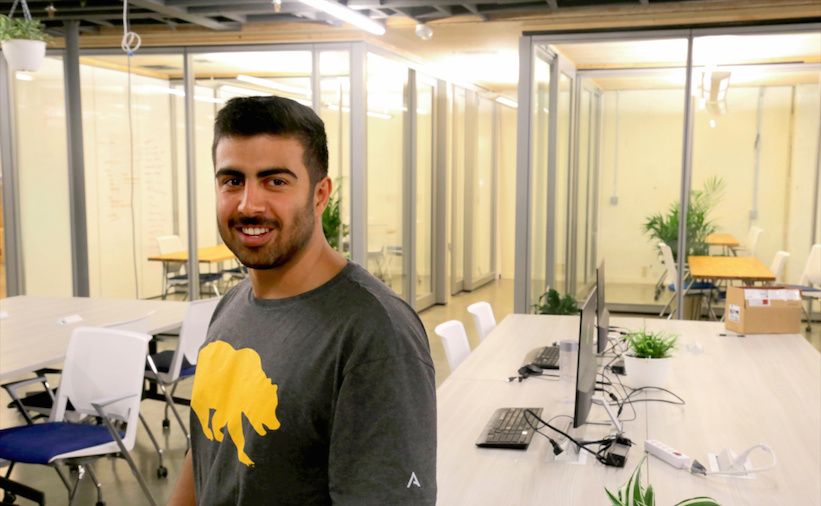 NEWS
NEWS
 NEWS
NEWS
 NEWS
NEWS
Stanford University is well-known for spawning startups, from Hewlett-Packard to Google to Instagram. The University of California at Berkeley, across San Francisco Bay from Stanford? Not so much.
Truth be told, UC Berkeley has produced more than its share of successful startups, including the likes of Nextdoor, TubeMogul, Cloudera, and Databricks, not to mention 486 startups last year alone, according to the venture and private equity database Pitchbook. The lack of recognition of UC Berkeley’s startup generation, though, does reflect a less overt emphasis at the university on entrepreneurship as a career path — a situation Cameron Baradar aims to fix.
Today, the 23-year-old Berkeley alum, a former software engineer at Apple-acquired Mapsense Inc. and onetime managing director of a prolific student-run nonprofit incubator program called Free Ventures, is unveiling the latest piece of a plan to make UC Berkeley even more of a startup hub: The House.
The 7,000-square-foot office space (shown above, with Baradar) is a nonprofit, independent startup institute located across the street from the university, informally known as Cal. The venture aims to provide a startup community for Cal students, faculty and alumni founders. More than that, it’s intended to provide free support for the founders either with in-house expertise or through references to outside resources.
“We saw a lack of early-stage, $50,000 or less funding, and we saw a lack of infrastructure and space,” Baradar said in an interview.
The venture is backed with $2 million raised from alumni, corporate sponsors and corporate philanthropic groups, which Baradar plans to reveal later. Investors in an associated $6 million seed and pre-seed venture fund called The House Fund, announced in April and run by 24-year-old Berkeley startup investor and Free Ventures partner Jeremy Fiance, attracted backers that include Sherpa Capital Managing Director Shervin Pishevar, Redpoint Ventures partner Jeff Brody, and Nextdoor founder and Chief Architect Prakash Janakiraman.
The House might sound like yet another venture accelerator or incubator, but Baradar says its model is a little different. For one, it’s focused solely on UC Berkeley students and faculty. There’s also no set limit on the amount of time a project takes to get underway or get funding, and the House will provide support for all stages of a project, from educational ventures to launching products or services.
One supporter, serial entrepreneur and onetime Java software evangelist Kim Polese, is a Cal biophysics grad and board member of the College of Engineering. She said Baradar’s and Fiance’s deep connections to the campus will be a big asset: “They’re on the ground, hanging out with students, faculty, and entrepreneurs.”
Indeed, they can point to previous successes with Free Ventures. The camera drone startup Lily Robotics, which went through that program, got some $34 million in preorders. One early example of how the House residency and venture units will work together is Indoor Reality, which makes indoor mapping technologies. It started with the residency and then got funding from The House Fund and is getting ongoing support from the program.
Polese also thinks The House will allow for more cross-pollination among various groups in the startup ecosystem. “Between students and faculty, grads and alums, the Bay Area business community and the broader community, they are encouraging interactions and creating a physical space for convening,” she said.
Despite Baradar’s and Fiance’s startup and funding experience so far, founders might wonder what help the relative youngsters can provide beyond what well-known accelerators and incubators such as Y Combinator and Techstars already provide. Baradar concedes the point, which is why no small part of its work will be connecting founders with outside help that already exists, such as incubators (including UC Berkeley’s own SkyDeck), faculty expertise, and venture funds.
“We aren’t coming in to supplant any of this,” Baradar said. “For anything we’re not good at, which is a lot of things, we will hustle hard to get what our founders need.”
A “large percentage” of The House Fund’s carry, or share of profits, will be returned to The House, Baradar said.
THANK YOU